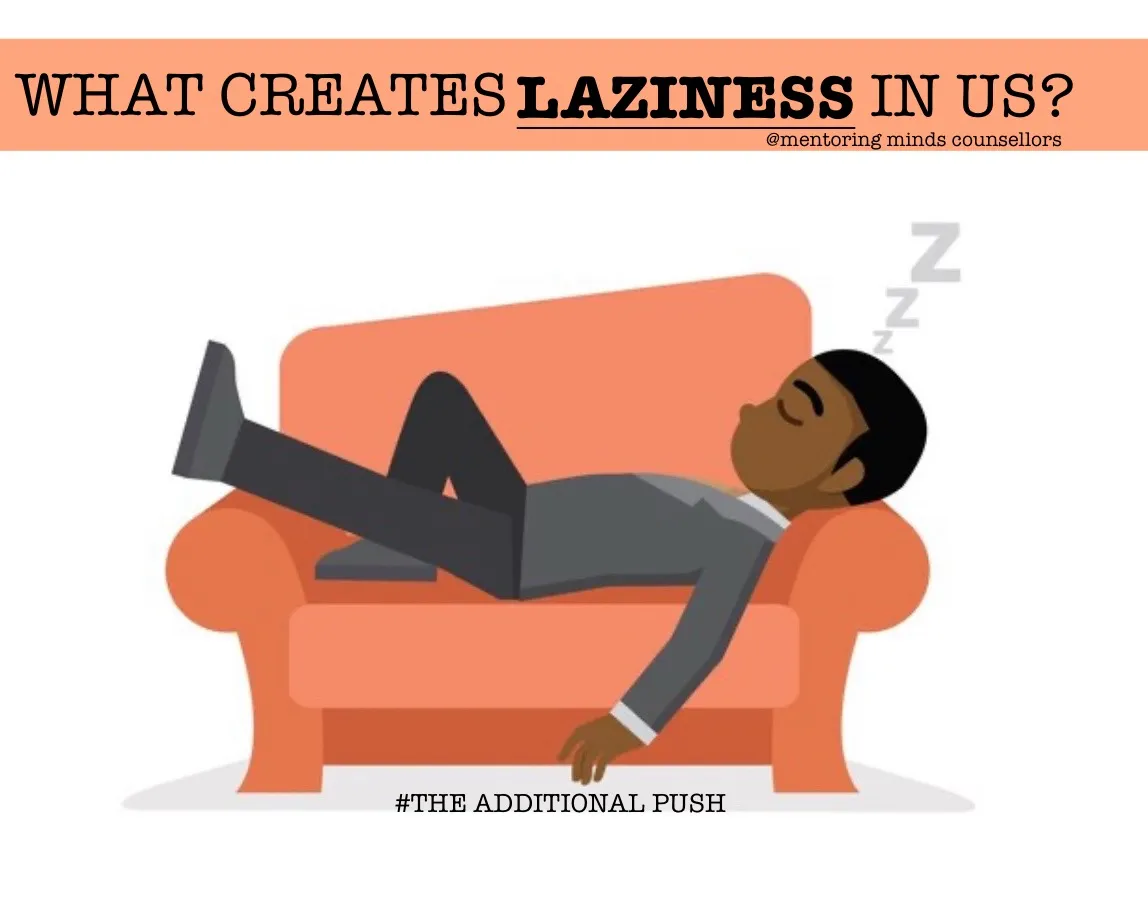Laziness something that we’ve all experienced at one time or another. Whether it’s procrastinating on a work project, avoiding exercise, or simply binging on Netflix when you know you should be doing something productive, laziness can often feel like an unavoidable part of life. But what exactly is laziness? Why do we struggle with it, and more importantly, how can we break free from it?
What Creates Laziness Within Us?
- Lack of Motivation:
Motivation plays a key role in driving our actions. When we’re not excited about a task or don’t see the value in completing it, laziness becomes a natural response. It’s easy to put things off when there’s no strong incentive to get them done. - Overwhelm and Burnout:
We’ve all had moments when the thought of tackling a large project feels so daunting that we’d rather do anything else. The fear of failure or not knowing where to start can create an overwhelming feeling that paralyzes us, resulting in procrastination and laziness. - Comfort and Immediate Gratification:
Our brains are wired to seek comfort and immediate pleasure. Whether it’s scrolling through social media or lounging on the couch, these activities offer instant rewards, which can be much more appealing than the long-term satisfaction that comes with hard work. - Lack of Structure and Routine:
Without a structured daily routine, it’s easy to fall into the habit of letting days slip by without accomplishing much. When there’s no clear schedule or boundaries for work and rest, the lines can blur, leading to periods of inactivity. - Fear to Fail:
Sometimes, the fear of not doing something perfectly can lead to inaction. We convince ourselves that we need everything to be just right before we begin, and this can delay progress and cause feelings of laziness or self-doubt.
How to Overcome Laziness?
- Focusing on the ‘Why’:
When we lack motivation, it’s often because we haven’t connected with the deeper reasons behind what we’re doing. Take a moment to reflect on why the task is important, whether it’s for personal growth, a sense of accomplishment, or to achieve a long-term goal. Reminding ourselves of the bigger picture can reignite our drive. - Combating Overwhelming:
If a task feels too overwhelming, take a step back and simplify it. Break it down into smaller chunks and tackle them one at a time. Focusing on one small task at a time can make it feel less intimidating and more manageable. - Limiting Distractions:
We live in a world full of distractions, from social media to endless streaming services. If you find yourself getting sidetracked, try setting boundaries. For instance, designate specific times to check social media, or create a phone-free zone during work hours. The less distracted you are, the easier it becomes to stay on track. - Building Positivity:
Surround yourself with people and environments that encourage productivity. Whether it’s a motivating colleague, a supportive friend, or a workspace that fosters focus, your environment can have a huge impact on your mindset and energy levels.
Final Thoughts
We at Mentoring Minds Counsellors understand that Laziness is a complex emotion, and overcoming it isn’t about being perfect. It’s about understanding what’s keeping us stuck and taking small, actionable steps to break free. By setting clear goals, establishing routines, and nurturing self-compassion, we can regain control over our time and productivity. Remember, progress is a journey, and even the smallest step forward is still a step in the right direction.


Leave a Comment